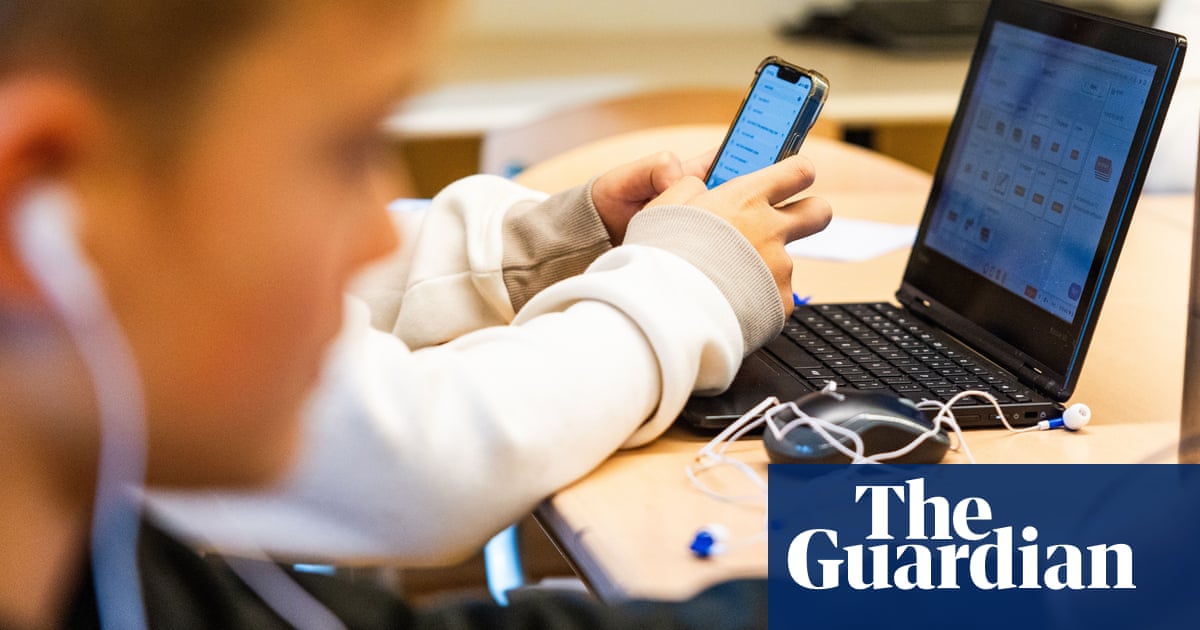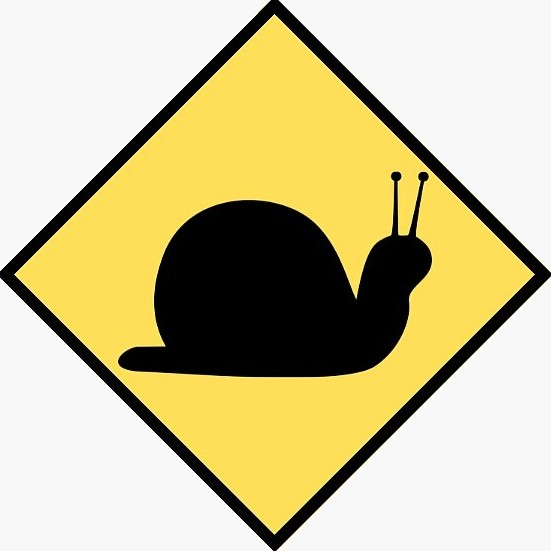More than 4,000 parents have joined a group committed to barring young children from having smartphones, as concerns grow about online safety and the impact of social media on mental health.
The WhatsApp group Smartphone Free Childhood was created by the former school friends Clare Fernyhough and Daisy Greenwell in response to their fears around children’s smartphone use and the “norm” of giving children smart devices when they go to secondary school.
“I’ve got a seven- and nine-year-old. Daisy’s got kids of a similar age and we were both feeling really horrified and worried and just didn’t want them to have smartphones at 11, which seems to be the norm now.”
Fernyhough and Greenwell hoped the movement would embolden parents to delay giving their children smartphones until at least 14, with no social media access until 16.
But what they expected to be a small group of friends who help “empower each other” has turned into a nationwide campaign after the group reached the 1,000-person capacity within 24 hours of Greenwell uploading an Instagram post to promote it.
Are these parents unable to keep their kids away from smartphones?
I’d guess not letting your kids have a smartphone could render them ostracized and bullied in school as long as it’s a very uncommon thing.
Most kids nowadays probably won’t spend much effort associating with someone that doesn’t have an online presence or social media I imagine.
So many group chats, hardly anyone phones or text messages, so even if you supply your kid with a dumb phone they will miss out on a lot of the social stuff going on at school.
Lots of people are quick to snap back with ‘Why don’t the parents… parent’ but as a parent, this is the larger worry. Like, yes, I can stop my kid from having a phone but if everyone in her friend group has one and uses one, am I doing damage in not letting her experience and grow alongside her friends?
The reality is that it’s not 2002 anymore, and my children aren’t going to grow up in a house with one semi-reliable internet-access point (family PC).
It’s significantly more complicated than merely suggesting that parents be better, because…what is better here?
Not talking about you, just some of the other comments seem… incredible snappy.
but if everyone in her friend group has one and uses one, am I doing damage in not letting her experience and grow alongside her friends?
Which is the point of the group - if you can get enough parents to not give their kids smartphones then it reduces the social pressure to get one.
However, the kid with one would be king of the class.
I saw my brother today and he reckoned my nephew didn’t really go out and see his friends - he communicates with them (a lot) on his phone or in games. Now that might not be desirable but him not having a phone won’t force him outside as everyone else will be inside on their phones. It just feels an unwinnable situation unless you got an almost complete consensus.
Yep, and then you have the blue Vs green bubble debacle.
As a fully grown adult the amount of shit I get from friends and co-workers for not using WhatsApp is crazy.
So many group chats, hardly anyone phones or text messages
You mean they only use voice group chat? Wierd.
They mean group chats as opposed to phone calls or SMS
Obviously. Sending SMS from computer requires jumping through all the hoops.
You were talking about group voice chat?
group chats as opposed to SMS
That’s the thing. Most parents aren’t giving their children smart phones because they want to. They’re doing it because not doing so would make their children social pariahs. At that point it’s no longer a choice.
Exactly. Personal experience.
With this and the online safety bill, apparently not. Which seems a bit odd - there’s that argument that kids could get around blocks adults put in plac, however, that might have been valid 10-20 years ago but people with kids today have grown up with the Internet. If they aren’t tech savvy that’s a choice by now but, even then, there will be organisations that can.point them to off-the-shelf products that will do.the job. After all, you have knives in the house and you restrict a child’s access to them until they can be trusted to use them properly.
Smartphones are bad for the mind of developing children; I’d go as far to say as they’re bad in general for adults (but that’s a different topic).
I never had a smartphone when I was a child and I turned out just fine…
The world is increasingly more reliant on technology though. When reading/writing was becoming more essential I’m sure many people had the same opinion. What works for one generation won’t necessarily work for the next, the world changes.
I do agree that there should be limits though, a lot of smartphone apps/games are designed in part by psychologists to deliberately exploit young minds that don’t have defenses against them yet
Or they could just be a bit more parenty.
They are being parenty. They are setting a boundary.
Social media absolutely needs regulating though. I think it should be subject to the same regulation as gambling
These black and white solutions are not tenable. My eldest got a phone when they moved up to secondary school. It’s a useful tool for keeping in touch with their friends especially when most people don’t have landlines any more. Their generation is growing up as digital natives and I don’t think holding them back from phones will help them in the long run.
We do limit what apps can be installed though. They certainly want TikTok but so far we’ve said no and YouTube is only available on the family TV. So far they have not expressed any interest in getting access to social media although I do have to occasionally unblock Facebook because some of the homework links to videos on the site.
I know I’m probably in the minority in having enough digital skills to erect some barriers against the worst of the internet but I’m very much aware they will set it eventually. My hope is we’ve done enough to prepare them for that by the time the training wheels come off.
What is this, common sense? In my comment section??
Why would e-homework be linked to Facebook.com? What a weird thing
A lot of homework starts with a media clip of some sort which they will comment on our analyse. Sometimes those clips are hosted on Facebook pages and it’s not really a windmill I want to tilt at right now.
4000 parents is still basically nothing
It’s the local Facebook group. No one else cares.
WhatsApp, but yes
This apparently “spontaneous” group of “ordinary mothers” looks surprisingly media-trained. I’d be interested in knowing more about the founders. When the “keep our schools open during covid” group were examined they turned out to be a puppet of a right-wing thinktank.
Given the surname of one of them, we are, presumably, distant cousins. So I’ll ask if we ever cross paths.
However, if it is astroturfing, I can’t quite see the agenda being promoted here or, strictly speaking, who’d gain from this unless it’s part of the lobbying done for the porn ID bill (as a lobbyist friend of mine claims to have been involved, there was cash being thrown around to make that happen).
You could be right. I listened to a Tory minister on the radio today talking about ending anonymity on the internet and - more interestingly - about silo-ing parts of the internet so that certain groups, such as children, could only access certain “versions” of the internet. I wonder whether that’s the longer-term agenda.
Things the Tories love doing:
- Giving money and favours to their rich chums
- Quelling descent, often about the above
You could see walling off parts of the Internet and cracking down on end-to-end encryption as being pieces in the same jigsaw. Once they have all the technology in place it would just need a concocted threat (Just Stop Oil organising their “terrorist outrages” online) for them to push it a bit further. Until, by increments, our Internet looks awfully like Chinas.
Maybe they can play with wooden toy soldiers until they turn 14 like in the Edwardian era or something.
And be illiterate their entire life like in the 1900.
Another way to exclude young people from society.
I grew up with very limited access to the Internet or even TV and I am so thankful my parents made that decision
I grew up with even less access. At school we used paper and ticker-tape to program computers. And there was no tv (which was black and white anyway) during the day. Those were the days. Boring as fuck!
It’s interesting that in both the U.K. and the U.S. these anti-social media campaigns are being fueled by ADULT phobias and fears, and not being based on what kids want or are saying they are experiencing online. I get why parents are fearful of kids being exposed to certain things (though I think often their fears are not logical) - but I don’t get why nobody NOBODY has bothered to ask kids if THEY feel they need protection from social media.
I mean if the whole thing is about what kids are experiencing - shouldn’t you be talking to the kids to find out what they think? And if they feel abused or hurt by what’s happening online? Or if they feel at risk, and if so, why?
In Utah (where I am) they’ve tried banning kids under 16 from having any social media access, and truly it’s because Utah’s republican legislatures are scared of everything that comes with technology and progress. They want us to return to the dark ages where people have to bow down and obey what those above them tell them to do.
I’m not saying that’s the only thing behind all of this, or that social media isn’t sometimes harmful in certain ways – but to enact bans based solely on personal prejudices without even consulting the groups most affected is absolutely insane, in my view.
This is the best summary I could come up with:
More than 4,000 parents have joined a group committed to barring young children from having smartphones, as concerns grow about online safety and the impact of social media on mental health.
Daisy’s got kids of a similar age and we were both feeling really horrified and worried and just didn’t want them to have smartphones at 11, which seems to be the norm now.”
Fernyhough and Greenwell hoped the movement would embolden parents to delay giving their children smartphones until at least 14, with no social media access until 16.
Smartphones expose children to a “world that they are not ready for” because they can access pornography and content on self-harm and suicide, which can have a detrimental impact on their mental health, Fernyhough said.
Esther Ghey, the mother of Brianna Ghey, called earlier this week for a complete ban on social media access for under-16s, and said more people will have mental health issues unless tech companies take action to restrict access to harmful content.
“They can live their childhood as they should do, focus on their learning and enjoy the real world without having to spend their life scrolling, which we all know is not good for them.”
The original article contains 610 words, the summary contains 200 words. Saved 67%. I’m a bot and I’m open source!














